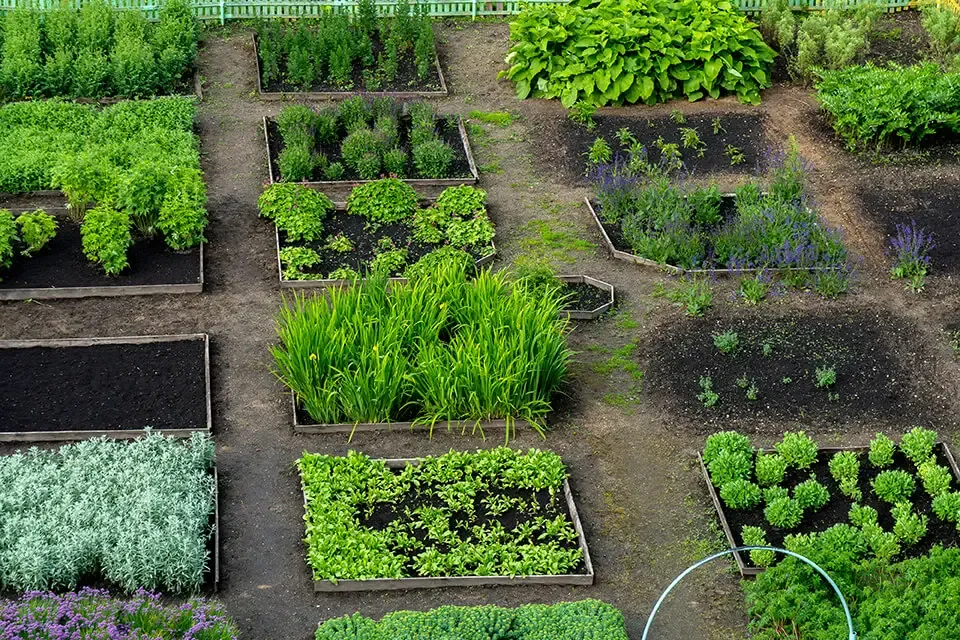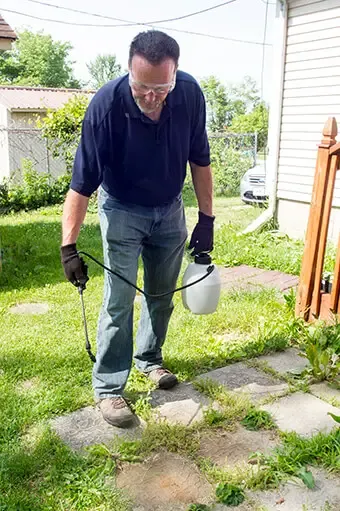Do you want to remove unattractive weeds from your garden without using commercial products that contain a range of toxic chemicals? The good news is that there are various eco-friendly weed killers that you can use to limit, control, or kill most of these intruders.

Source: Deposit Photos
While most commercial weed killers work, an increasing number of people are looking for safe, natural alternatives for weed control. As part of a natural gardening regimen along with making your own compost, these weed killers are less harmful to the environment and better for our health.
In this article, we'll explore various ways to get rid of unwanted weeds naturally, with homemade and eco-friendly weed killers that anyone can make with the right know-how.
Preparation

Source: Deposit Photos
Before you use these homemade weed killers, it's worth remembering a few basic techniques for controlling weeds:
- Cut down bigger weeds before using one of these eco-friendly weed killing methods.
- Choose a calm, sunny day with no forecast of rain. You don't want a strong breeze to carry your spray onto other plants, and the hot sun helps speed up the weed-killing process.
- Cover or tie back nearby plants that you don't want to harm.
- Spray these solutions onto the weeds only, avoiding the soil as much as possible.
Recipes for Homemade, Eco-Friendly Weed Killers (With Instructions)
Salt and Vinegar Weed Killer
Vinegar is the most well-known method for killing weeds naturally. You may have to apply it a few times to kill all the weed sprouts, but eventually the weeds will give up. Common white vinegar, containing around five percent acetic acid will work, but if you can get food grade solution of around 15 percent, even better.
Ingredients:
- 1 liter of white vinegar
- ¼ cup of salt
- 1 teaspoon of natural liquid soap
- 5 drops of herbicidal essential oil, such as citrus or thyme (optional)
Instructions:
Pour the vinegar into a spray bottle. Add the salt, liquid soap, and essential oil, if using. Put on a lid and shake well. Squirt directly onto the weed itself, not the surrounding ground. Use at the sunniest time of the day for best results.
Apple Cider Vinegar and Epsom Salt Weed Killer
A similar recipe to the last one uses apple cider vinegar and no liquid soap.
Ingredients:
- 1 liter of apple cider vinegar
- 1 cup of Epsom salt
Instructions:
Fill a spray bottle with the apple cider vinegar. Use a funnel to pour the salt into the bottle. Shake well so that the salt dissolves. Apply directly to weeds.
Vegetable or Herbal Oil Weed Killer
Oil makes a good herbicide as it suffocates plants. Cheap vegetable oils like sunflower oil are eco-friendly because they can be broken down by bacteria in the soil. Don't use old engine or diesel oil as these are toxic.
Many herbal and plant oils act as natural pesticides and herbicides, and you can mix them with vinegar to attack weeds. Plant oils such as citrus oil, castor oil, pine oil, and thyme oil can be found in most garden centers.
Ingredients:
- Vegetable oil, such as canola or sunflower oil
Instructions:
Gently pour the vegetable oil onto the weed so that it coats it completely. If you're using herbal oil, mix about ten drops with a liter of vinegar in a spray bottle and spray directly onto the weeds.
Eco-Friendly Weed Killers for Grass
If you're looking for safer ways to treat weeds without ruining your lawn, try the following two methods:
Corn Gluten Meal Weed Killer
Corn gluten meal is known as a pre-emergent weed killer because it kills seedlings before they appear above ground. It won't harm your grass or existing plants and its high nitrogen content means it feeds your soil too. If you want to control weeds like crabgrass, knot-weed, lamb's quarters, and dandelions that appear on your lawn, this is the one to try.
Ingredients:
- Corn gluten meal
Instructions:
Use according to package instructions. Remove larger weeds that are showing first, and then sprinkle over the area where weeds were or where there are unwanted seeds. Use in early spring and again in late summer.
Soap and Water Weed Killer
This soap and water method works best on hot days.
Ingredients:
- 1 liter of water
- 100 ml of natural liquid soap
Instructions:
Combine the water and soap in a spray bottle. Spray the weeds during the hottest part of the day until they are coated with the mixture. The water will evaporate and the soap will dry out the weeds.
Wrapping Up
These eco-friendly ways to remove garden weeds will keep your garden tidy without resorting to harmful, industrial chemicals. Try out these methods and see which ones work best for you.
Controlling weeds naturally is personally rewarding, not only because you will improve your skills as a gardener, but also because you will have achieved it without hurting the environment.